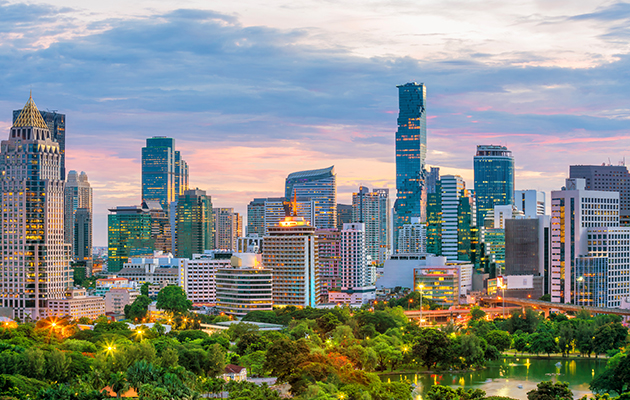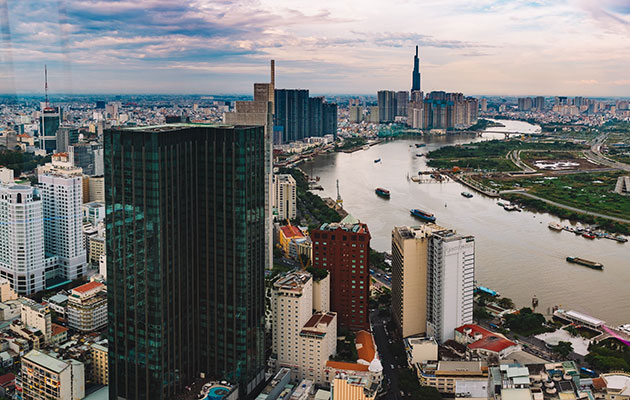-
Articles
Real Estate Due Diligence
Recently, there have been a number of administrative cases ruled by administrative courts relating to real estate, such as the revocation of a building permit which was issued in contradiction with the building control law; and the demolition of buildings which encroach public land or were built in violation of the relevant building permit.
If and when you plan to invest in or acquire real estate in Thailand (specifically, any construction built on land cannot be owned by a foreign national in general), a due diligence report should be conducted thus to ensure the legal risks and rights over the acquired property, as well as the restrictions on building construction or land use.
- With regard to the title status of the land and whether or not the title status was legally issued, under Thai law, land which is classified as private land, such as land with a title deed or a Nor Sor 3 Gor Title or another deed or land right certification, e.g. Sor Kor 1 or Nor Sor 3, can be transferred, sold and purchased. Please note that the purchase of land is void if such land is classified as public land or land that belongs to the government sector, such as land with a Sor Por Gor 4-01 Title (land over which the government gives a right of possession and use for agricultural purpose to a specific farmer), Nor Kor 3 or Nor Kor 1 (land over which the government gives a right of possession and use for agricultural purpose to a specific person with low income, and such land shall be located within the so called “Nikom Srang Ton Eng” area), or a road or the land belonging toa temple.
- Does the seller have the right to sell such real estate?
- Are there any legal encumbrances or attachments, such as any mortgage, lease, servitudes, habitation, superficies, usufruct or charge on immovable property created over such real estate? Is there any limitation of land transfer? If the target land is located in a rural area and is leased for rice farming, if there is no written lease agreement then the lease term is six years and, in such case, the lease cannot be terminated before the end of the lease term; and the land transferee must accept all rights and duties of the land transferor to the lessee in accordance with the Land Lease for Agriculture Act B.E. 2524 (1981), amended by Land Lease for Agriculture Act (No. 2) B.E. 2559 (2016) (the “Act”). In addition, the lessee has preferential rights to buy land leased for rice farming under the Act. If the land transferor fails to make a prior offer to the lessee before selling the land which is under the lease for rice farming within two years from the date of the land transfer, the lessee has the right to buy the land from the land transferee at the price the transferee paid or the market price, whichever is higher. Another limitation under the Act is that a foreigner is prohibited from renting land for agricultural use. The sale with right of redemption, exchange and transfer as a foreclosure of mortgage is deemed a sale of land under the Act.
- What are the details of the land, such as the size and shape of area on the documents of its map location and the actual area and surrounding objects upon the physical land survey?
- Does any part of the target real estate submitted by the seller encroach on public land?
- Is the land adjacent to a public road? If the access to the target real estate is through another property, is the servitude registered over such land?
- Is there any litigation case involving the target real estate or the seller/owner which may affect the right over the real estate?
- Is there a valid building permit in accordance with the relevant laws governing building control, zoning and the environment? Is the building construction in compliance with the building permit and the relevant laws, such as the laws governing building control, land development, factory, condominium, public health and environment?
- What is the type of zoning of the target real estate as well as its allowed type and scope of land and building use under the relevant laws governing zoning, building control and the environment? Land use and zoning in Thailand are regulated under the Town Planning Act B.E. 2562 (2019), which repealed and replaced the old Town Planning Act B.E. 2518 (1975) and its amendment, and came into effect as of 25 November 2019.
The Bangkok City Plan B.E. 2556 (2013) and its draft amendment (The Bangkok City Plan - No.4)
The Bangkok City Plan 2013 consists of plans indicating land use zoning, open space, communication and transportation, and public infrastructure; it regulates the land use, building use, activities and height of building, floor area ratio (FAR), open space ratio (OSR) and green area in certain areas of the land use zoning plan.
Currently, the Bangkok Metropolitan Administration is preparing the Bangkok City Plan (No.4) which, as required under said Town Planning Act 2019, shall include the above-mentioned plans as well as two new additional plans, i.e. natural resources and environment; and water resources map, and shall require a public hearing of the persons to be affected by each type of plan. The Bangkok Metropolitan Administration expects that the Bangkok City Plan (No.4) will be promulgated in 2024.
Due to the ongoing Covid-19 pandemic situation, the public hearing is yet to be organised. In such regard, real estate owners in Bangkok should consider participating in the public hearing in order to protect their interests.
This is intended merely to provide a regulatory overview and not to be comprehensive, nor to provide legal advice. Should you have any questions on this or on other areas of law, please do not hesitate to contact:
Nuttaros Tangprasitti
Partner
Thiti Homjabok
Associate
Malinee Kriengkrailipikorn
Associate




